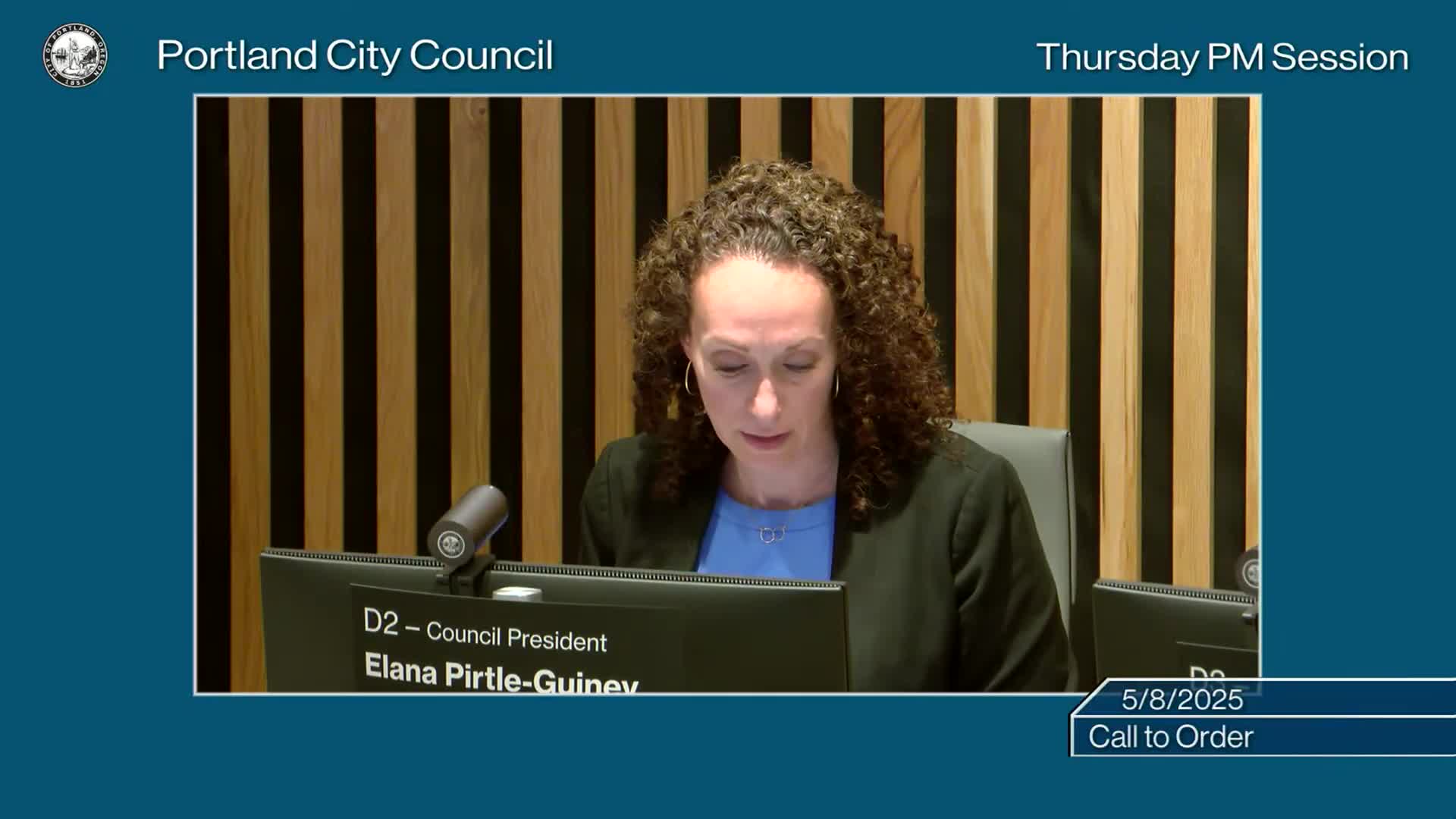Article not found
This article is no longer available. But don't worry—we've gathered other articles that discuss the same topic.
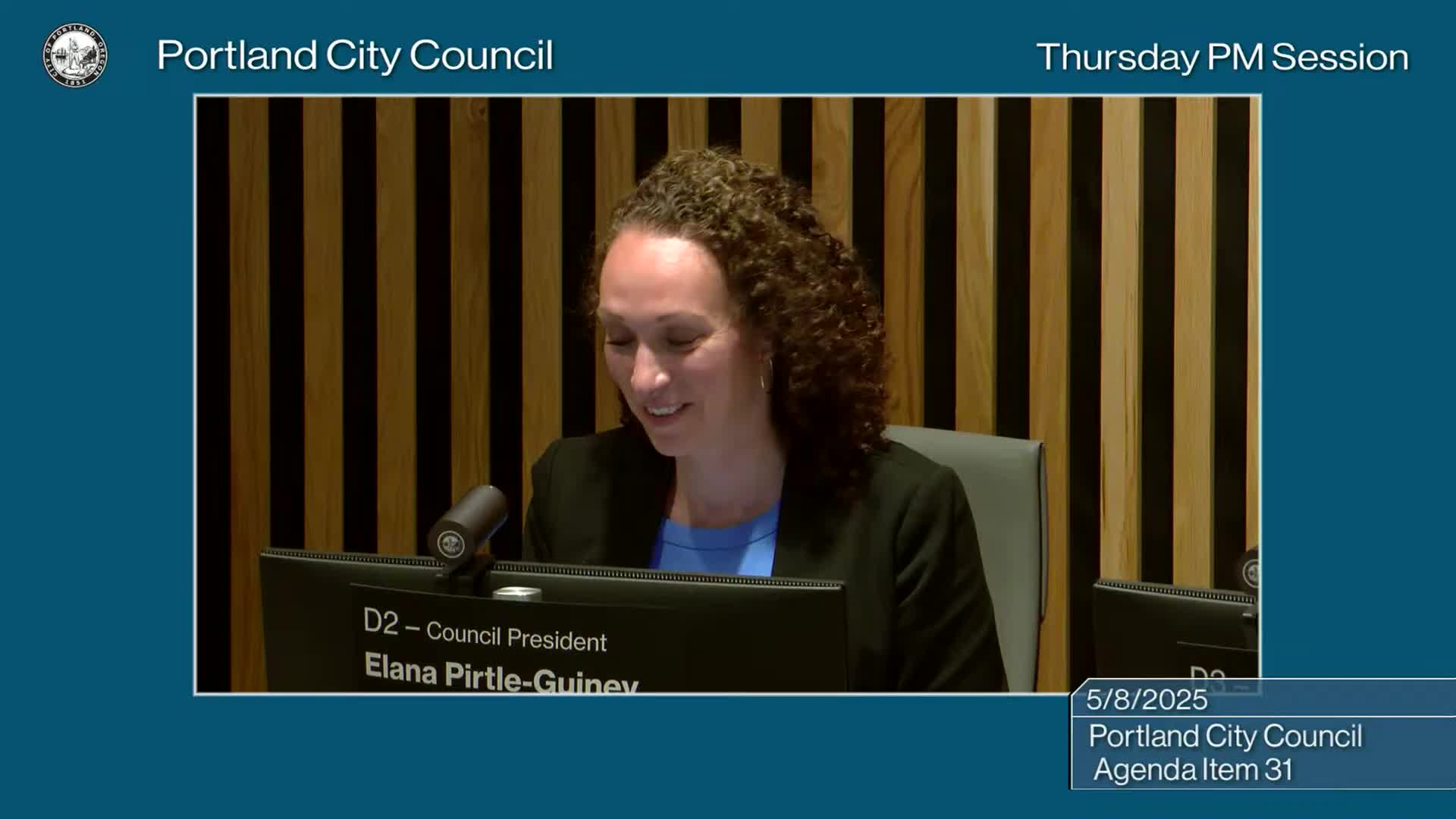
Prosper Portland presents FY26 proposed budget as community groups urge continued general‑fund support
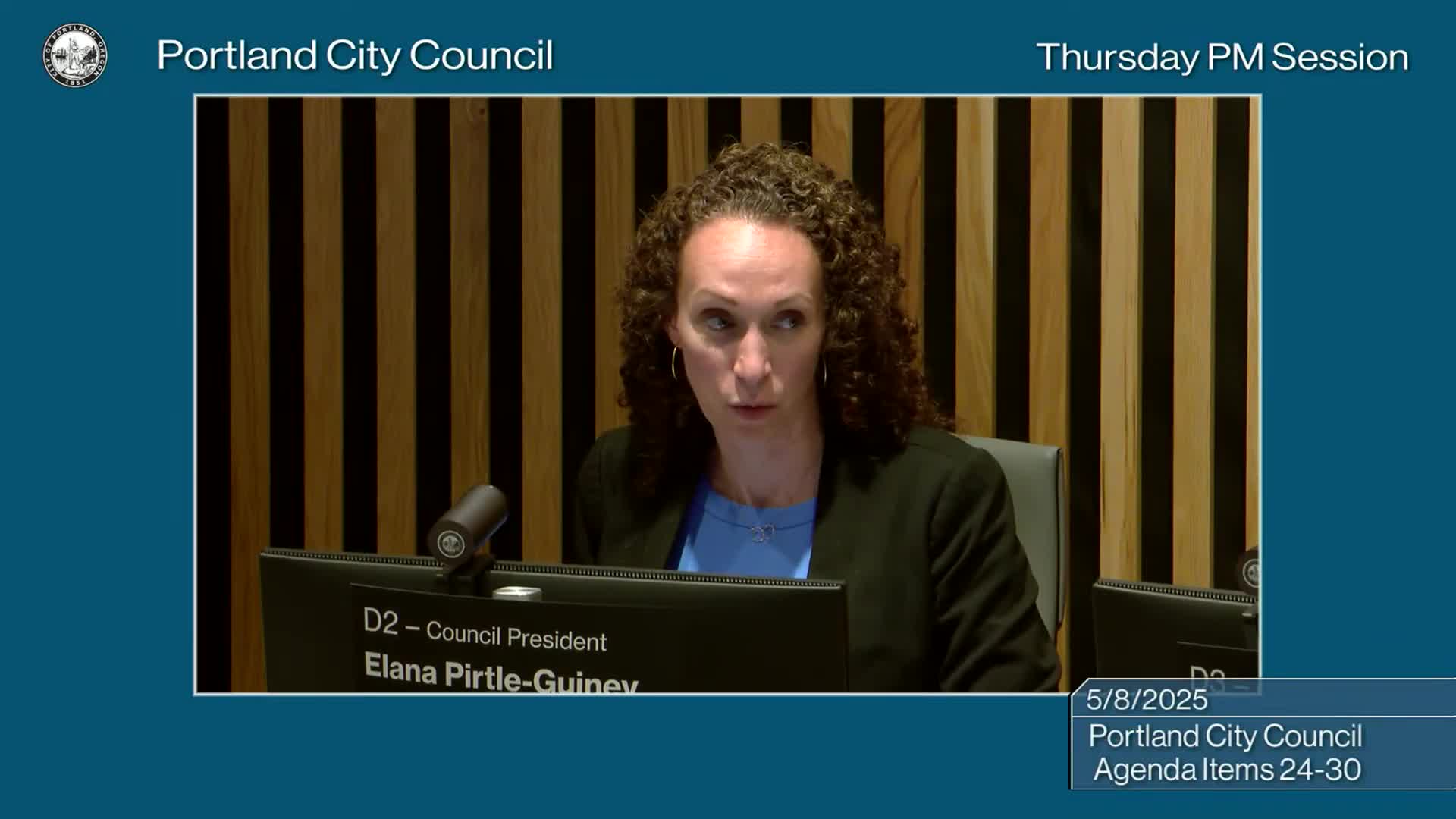
City Budget Office previews Insight Survey and Performance Portland dashboard; homelessness, cost of living and safety top concerns
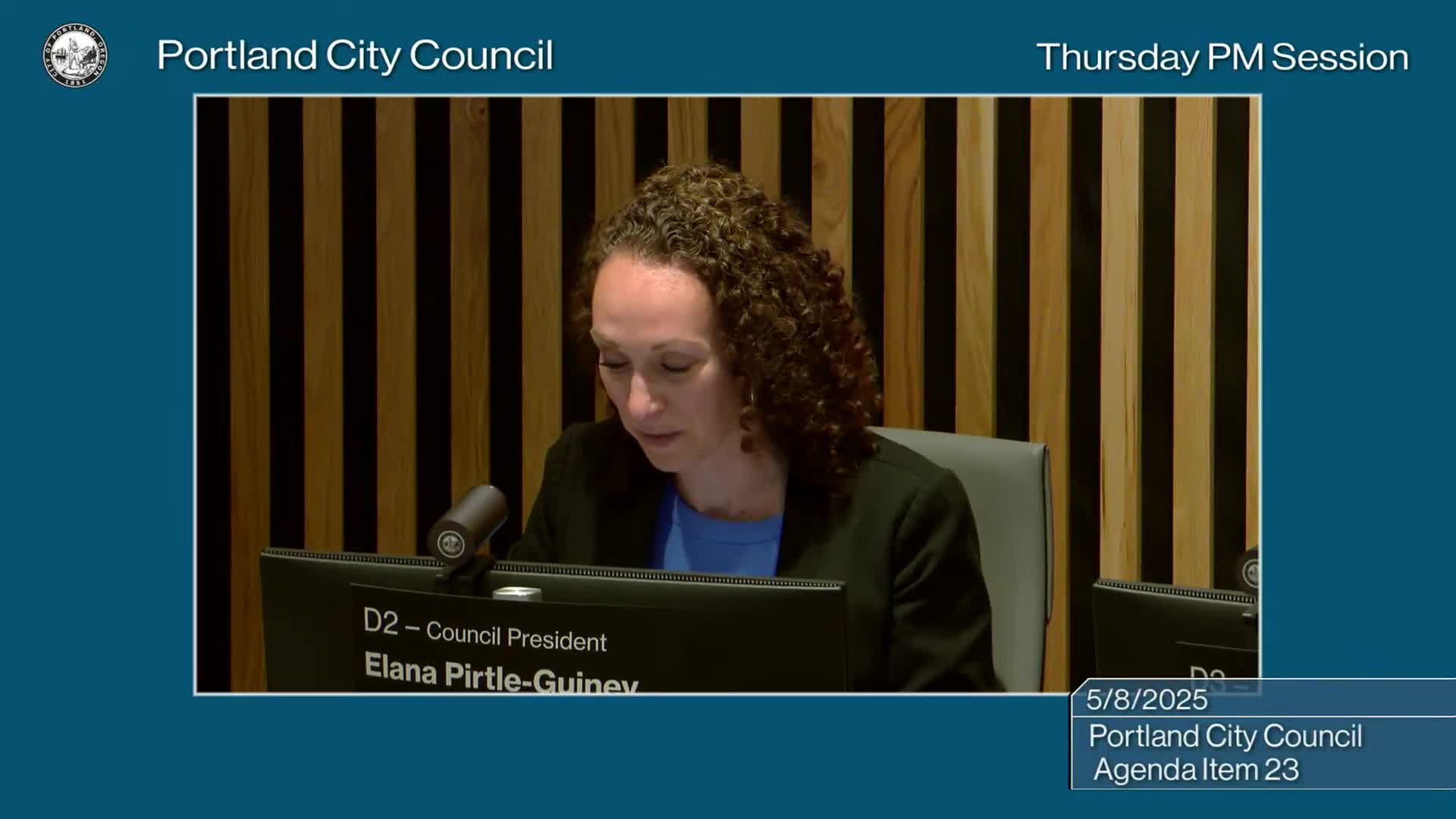
Council holds first readings on multiple fee schedules; water, sewer and stormwater rates restored to earlier projection
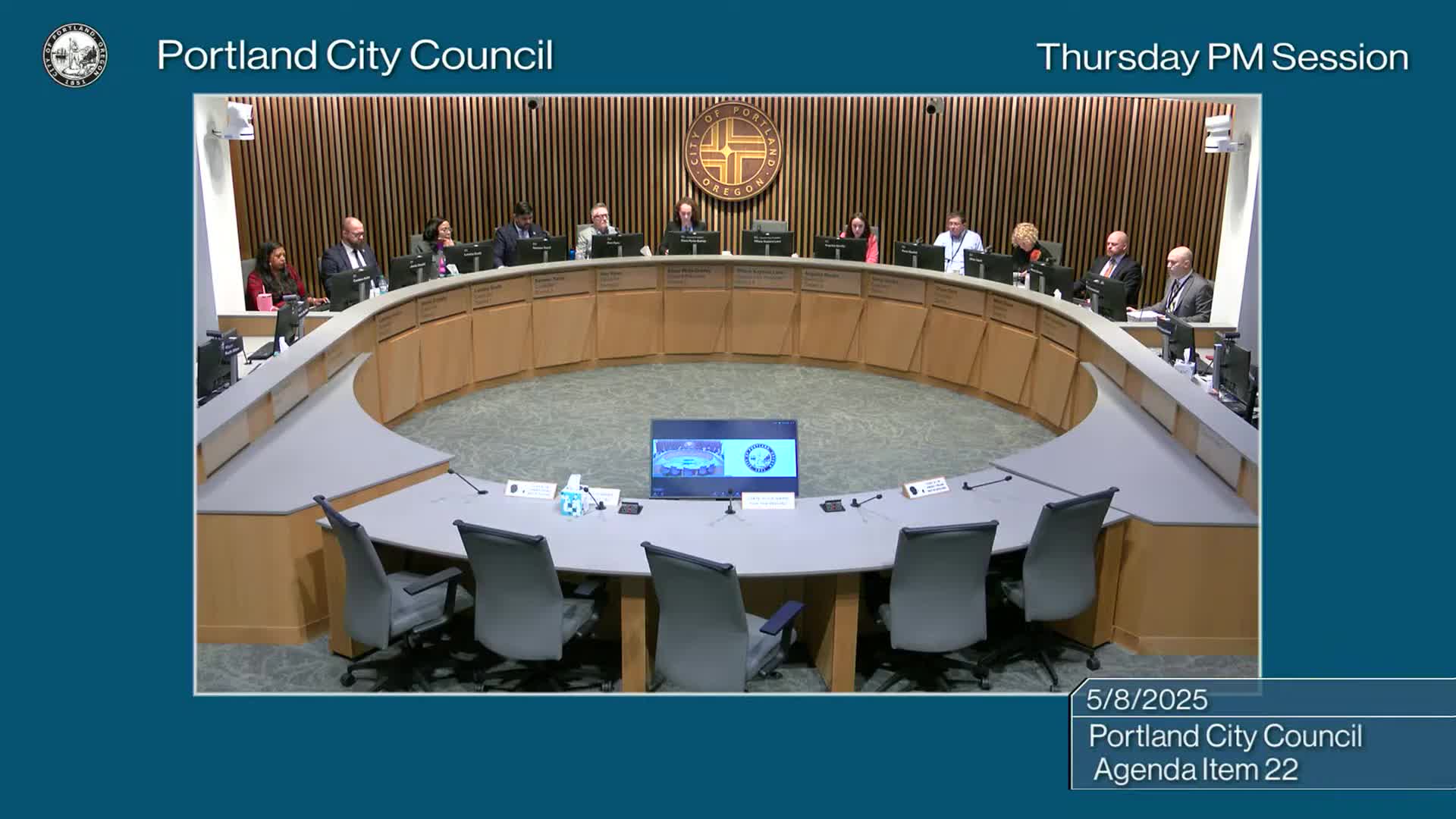
Council confirms Sustainability and Climate Commission amid questions about transportation representation and alternates
